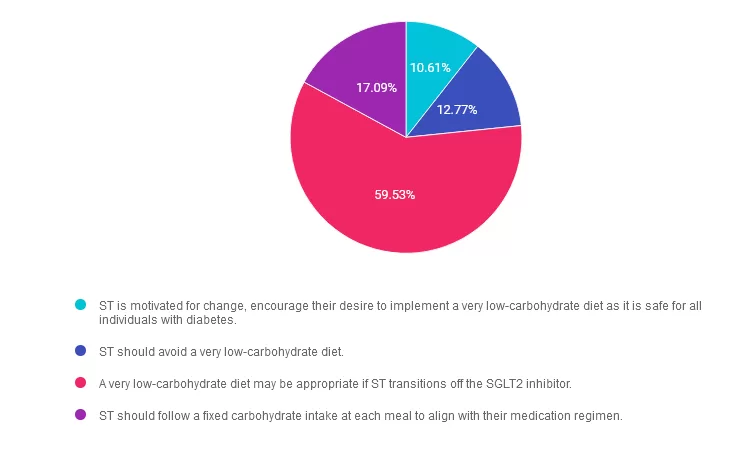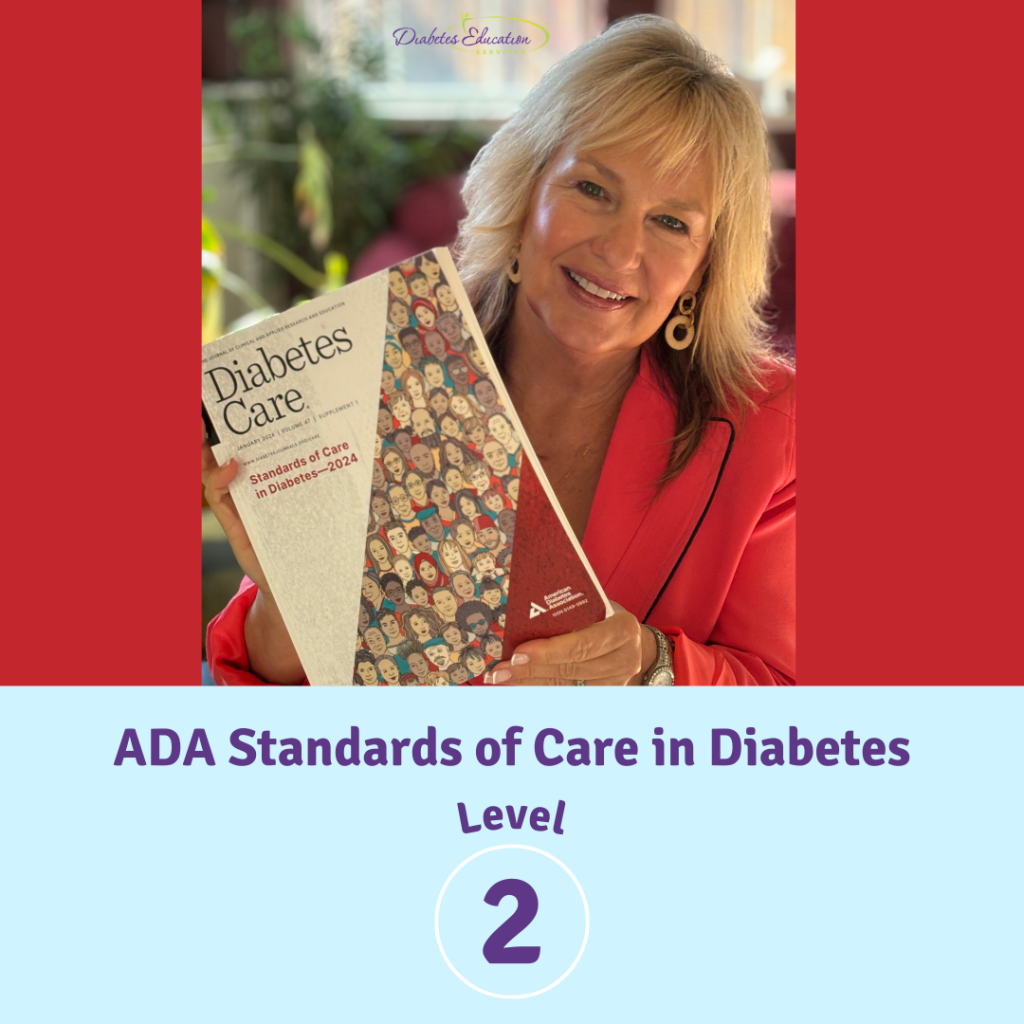For last week’s practice question, we quizzed participants on SGLT-2’s & low carb diets. 60% of respondents chose the best answer. We want to clarify and share this important information, so you can pass it on to people living with diabetes and your colleagues, plus prepare for exam success!
Before we start though, if you don’t want any spoilers and haven’t tried the question yet, you can answer it below: Answer Question

Question: ST is a 56-year-old presenting for MNT and diabetes education. Their last A1c was 7.4%, and they are currently taking 1000 mg of Metformin and 10 mg of empagliflozin daily for glucose management. They recently read that a very low-carbohydrate eating pattern can help individuals with type 2 diabetes reduce A1C and the need for additional medications and are motivated to implement diet changes.
What would be your primary considerations and guidance in response to ST?
Answer Choices:
- ST is motivated for change, encourage their desire to implement a very low-carbohydrate diet as it is safe for all individuals with diabetes.
- ST should avoid a very low-carbohydrate diet.
- A very low-carbohydrate diet may be appropriate if ST transitions off the SGLT2 inhibitor.
- ST should follow a fixed carbohydrate intake at each meal to align with their medication regimen.

Getting to the Best Answer
Answer 1 is incorrect. 10.61% chose this answer. “ST is motivated for change, encourage their desire to implement a very low-carbohydrate diet as it is safe for all individuals with diabetes.” While very-low-carbohydrate diets has evidence for reducing A1c and need for additional medications, they may not be universally safe for all individuals. Keep reading to learn more.
Answer 2 is incorrect. 12.77% of you chose this answer. “ST should avoid a very low-carbohydrate diet.” A very-low-carbohydrate diet is not inherently contraindicated for individuals with diabetes, but careful planning and potential discontinuation of the SGLT2 inhibitor is recommended to reduce the risk of euglycemic ketoacidosis.
Answer 3 is correct. About 59.53% of respondents chose this. “A very low-carbohydrate diet may be appropriate if ST transitions off the SGLT2 inhibitor.” Use SGLT2 inhibitors with caution when implementing a low carbohydrate diet and strong consideration should be made to cease this medication if implementing a very low carbohydrate diet, less than 50 grams of carbohydrate per day. Very low carbohydrate diets may increase the risk of euglycemic ketoacidosis by lowering insulin levels. After additional clinical review, a very-low-carbohydrate diet can be considered for ST if they transition off the SGLT2 inhibitor. Educating ST about the difference between physiological ketosis and pathological ketoacidosis may also be considered.
Finally, Answer 4 is incorrect. 17.09% chose this answer. “ST should follow a fixed carbohydrate intake at each meal to align with their medication regimen.” While fixed carbohydrate intake can sometimes simplify diabetes management, it does not align with ST’s interest in very-low-carbohydrate eating patterns. The current medication regimen does not necessarily require a fixed carbohydrate plan. Simply educating on this approach without additional shared decision making may not provide an individualized dietary intervention.
Reference: American Diabetes Association Professional Practice Committee; 5. Facilitating Positive Health Behaviors and Well-being to Improve Health Outcomes: Standards of Care in Diabetes—2024. Diabetes Care 1 January 2024; 47 (Supplement_1): S77–S110. https://doi.org/10.2337/dc24-S005
We hope you appreciate this week’s rationale! Thank you so much for taking the time to answer our Question of the Week and participate in this fun learning activity!
Want to learn more about this question?
Check out these upcoming class offerings!
All hours earned count toward your CDCES Accreditation Information
Sign up for Diabetes Blog Bytes – we post weekly Blog Bytes that are informative and FREE! Every week we post one exam practice Question of the Week and Rationale of the Week. Sign up below!
The use of DES products does not guarantee the successful passage of the certification exam. CBDCE and ADCES do not endorse any preparatory or review materials for the CDCES or BC-ADM exams, except for those published by CBDCE & ADCES.













